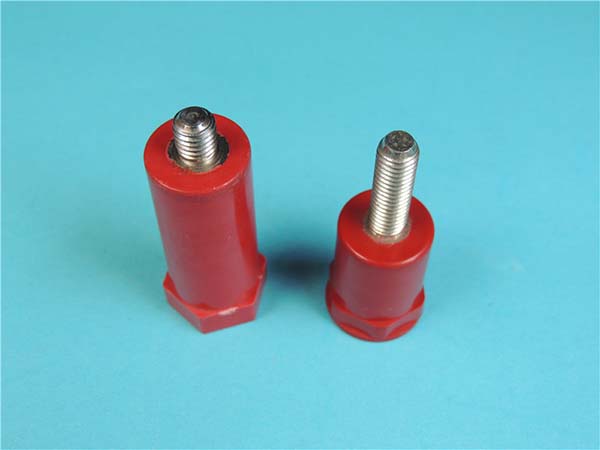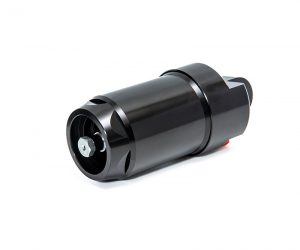What is Phenolic Bakelite Sheet?
Phenolic bakelite sheet, also known as phenolic resin laminated sheet, is a type of composite material formed by impregnating paper or fabric substrates with phenolic resin and then subjecting them to high - pressure and high - temperature curing processes. This results in a rigid and durable sheet material with a wide range of applications.
Composition
The main components of phenolic bakelite sheet are phenolic resin and a substrate material. Phenolic resin, which is a thermosetting polymer, is synthesized from phenol and formaldehyde through a condensation reaction. This resin provides the sheet with excellent mechanical properties, heat resistance, and chemical stability. The substrate can be various materials, with paper - based phenolic bakelite sheets using kraft paper as the substrate, and fabric - based ones often using cotton cloth. For example, in some industrial applications where high - strength and wear - resistance are required, fabric - based phenolic bakelite sheets are preferred due to the enhanced mechanical properties provided by the cotton cloth substrate.
Basic Characteristics
- Mechanical Strength: Phenolic bakelite sheets exhibit high mechanical strength, including good tensile strength, compressive strength, and flexural strength. They can withstand significant mechanical stress without deformation or breakage. For instance, a standard phenolic bakelite sheet with a thickness of 3mm can typically withstand a flexural load of up to 150MPa, making it suitable for use in structural components in machinery and electrical equipment.
- Heat Resistance: These sheets have excellent heat - resistant properties. They can maintain their structural integrity and mechanical properties at relatively high temperatures. Most phenolic bakelite sheets can withstand continuous operating temperatures of up to 150 - 180°C, and in some special formulations, they can even endure short - term exposure to temperatures as high as 250°C. This makes them ideal for applications in high - temperature environments, such as in electrical insulation in motors and transformers that generate heat during operation.
- Electrical Insulation: Phenolic bakelite sheets are well - known for their outstanding electrical insulation properties. They have a high dielectric strength, which means they can resist the flow of electric current effectively. The dielectric strength of phenolic bakelite sheets can reach values as high as 15 - 20kV/mm, ensuring reliable electrical insulation in electrical and electronic applications, like circuit boards and insulating panels.
- Chemical Resistance: They show good resistance to a variety of chemicals, including acids, alkalis, and organic solvents. This chemical stability allows them to be used in chemical processing plants, laboratories, and other environments where exposure to corrosive substances is possible. However, their resistance may vary depending on the concentration and type of chemical, so it's crucial to select the appropriate grade of phenolic bakelite sheet for specific chemical - exposure applications.
Appearance
Phenolic bakelite sheets usually have a smooth and uniform surface. The color can vary depending on the type of substrate and resin used. Paper - based phenolic bakelite sheets are often brownish - red, while fabric - based ones may have a more textured appearance and can range in color from darker browns to black. Their surface finish can be either glossy or matte, depending on the manufacturing process and the intended application requirements. For example, in decorative applications, a glossy - finished phenolic bakelite sheet may be chosen for its aesthetic appeal, while in industrial machinery, a matte - finished sheet may be preferred to reduce glare and improve visibility in the workplace.
Applications of Phenolic Bakelite Sheet
In the Electrical Industry
- Electrical Enclosures: Phenolic bakelite sheets are widely used in manufacturing enclosures for electrical equipment such as switchgear, distribution boards, and control panels. Their high electrical insulation properties prevent electrical leakage, ensuring user safety. For Yigu Technology example, in a typical industrial control panel, the enclosure made of phenolic bakelite sheet can protect the internal electrical components from external moisture, dust, and accidental contact. The Yigu Technology table below shows the comparison of electrical insulation properties between phenolic bakelite sheet and other common insulating materials:
| Material | Dielectric Strength (kV/mm) | Volume Resistivity (Ω·m) |
| Phenolic Bakelite Sheet | 15 - 20 | \(10^{11}-10^{13}\) |
| PVC Insulating Sheet | 10 - 15 | \(10^{9}-10^{11}\) |
| Epoxy Resin Sheet | 20 - 25 | \(10^{12}-10^{14}\) |
- Insulating Components: They are also used to produce various insulating components like insulators, bushings, and terminal blocks. These components are crucial for maintaining the electrical integrity of power transmission and distribution systems. In high - voltage power lines, phenolic bakelite insulators can effectively isolate the conductors from the supporting structures, withstanding high - voltage gradients and environmental stresses.
In Mechanical Engineering
- Mechanical Parts: Phenolic bakelite sheets find applications in the production of mechanical parts that require a combination of mechanical strength and dimensional stability. Gears made from phenolic bakelite sheets can operate smoothly with reduced noise levels, especially in low - to medium - load applications. They are also used in manufacturing pulleys, cams, and levers. The following Yigu Technology table compares the mechanical properties of phenolic bakelite sheet - made gears with traditional metal gears:
| Property | Phenolic Bakelite Gear | Metal Gear (e.g., Aço) |
| Density (g/cm3) | 1.3 - 1.5 | 7.8 - 8.0 |
| Tensile Strength (MPa) | 30 - 60 | 200 - 800 |
| Noise Level during Operation | Low | High |
- Gaskets and Seals: Phenolic bakelite sheets are suitable for making gaskets and seals in engines, pumps, and valves. Their chemical resistance and heat - resistant properties enable them to maintain a tight seal even in harsh operating conditions. For instance, in an internal combustion engine, phenolic bakelite gaskets can withstand high - temperature engine oil and combustion gases, preventing leaks and ensuring the efficient operation of the engine.
In Other Fields
- Aerospace Applications: Although aerospace materials generally require extremely high - performance characteristics, phenolic bakelite sheets are sometimes used in non - critical components or in applications where weight reduction and cost - effectiveness are important. For Yigu Technology example, in some interior components of aircraft, such as lightweight partition panels or non - structural brackets, phenolic bakelite sheets can be utilized due to their good mechanical properties and relatively low density.
- Automotive Industry: In the automotive industry, phenolic bakelite sheets are used in various applications. They can be found in the interior components like dashboard panels, where their flame - retardant properties add an extra layer of safety. Additionally, they are used in some electrical components within the vehicle, such as insulating covers for wiring harnesses, ensuring the proper functioning of the vehicle's electrical system.
How to Choose the Right Phenolic Bakelite Sheet
Choosing the right phenolic bakelite sheet is crucial to ensure optimal performance and cost - effectiveness in your applications. Here are some key factors to consider:
Consider Your Application Requirements
- Mechanical Requirements: If your application involves high - stress mechanical parts, such as gears or structural components in machinery, you need to choose a phenolic bakelite sheet with high mechanical strength. Fabric - based phenolic bakelite sheets generally offer better mechanical properties compared to paper - based ones due to the reinforcement provided by the fabric substrate. For example, in a high - precision industrial machine, a fabric - based phenolic bakelite sheet with a tensile strength of at least 50MPa would be a suitable choice for parts that experience significant pulling forces.
- Electrical Requirements: For electrical insulation applications, the dielectric strength and volume resistivity of the phenolic bakelite sheet are of utmost importance. If you are using it in high - voltage electrical equipment, look for a sheet with a dielectric strength of 18 - 20kV/mm or higher. Different grades of phenolic bakelite sheets are available, and you should select the one that meets the specific electrical requirements of your application, whether it's for a low - voltage circuit board or a high - voltage transformer insulation.
- Chemical Exposure: When the sheet will be exposed to chemicals, consider its chemical resistance. For exposure to strong acids or alkalis, a phenolic bakelite sheet with enhanced chemical - resistant properties should be chosen. Some manufacturers offer special formulations of phenolic resin that provide better resistance to specific chemicals. For instance, if your application is in a chemical processing plant where there is exposure to sulfuric acid, make sure the chosen sheet can withstand the corrosive effects of this acid without degradation.
- Temperature Conditions: Determine the operating temperature range of your application. If it will be used in high - temperature environments, ensure that the phenolic bakelite sheet can maintain its properties at those temperatures. As mentioned earlier, most standard phenolic bakelite sheets can handle continuous temperatures up to 150 - 180°C, but for applications with higher temperature requirements, special high - temperature - resistant grades are available.
Cost - Benefit Analysis
- Price Comparison: Obtain quotes from multiple suppliers to compare prices. However, price should not be the only determining factor. A very low - priced phenolic bakelite sheet may not meet your quality requirements, leading to costly replacements or performance issues in the long run. Consider the overall cost - effectiveness, taking into account the quality and performance of the sheet.
- Long - Term Costs: Think about the long - term costs associated with the phenolic bakelite sheet. A higher - quality sheet may have a higher upfront cost but could offer better durability and performance, reducing the need for frequent replacements. For example, in a large - scale industrial application where equipment downtime due to component failure is costly, investing in a higher - quality phenolic bakelite sheet can save money in the long term by minimizing maintenance and replacement costs.
Conclusion
In Yigu Technology conclusion, phenolic bakelite sheet is a versatile and reliable material with a wide range of applications in various industries. Its unique combination of mechanical strength, heat resistance, electrical insulation, and chemical resistance makes it an ideal choice for many engineering and manufacturing needs.
When it comes to choosing a phenolic bakelite sheet, it is essential to carefully evaluate your application requirements, the quality of the supplier, and conduct a comprehensive cost - benefit analysis. By doing so, you can ensure that you select the most suitable phenolic bakelite sheet for your specific needs, which will not only guarantee optimal performance but also contribute to the long - term success and cost - effectiveness of your projects.

